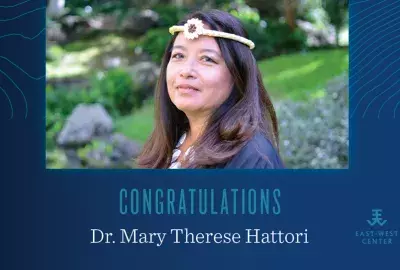Error message
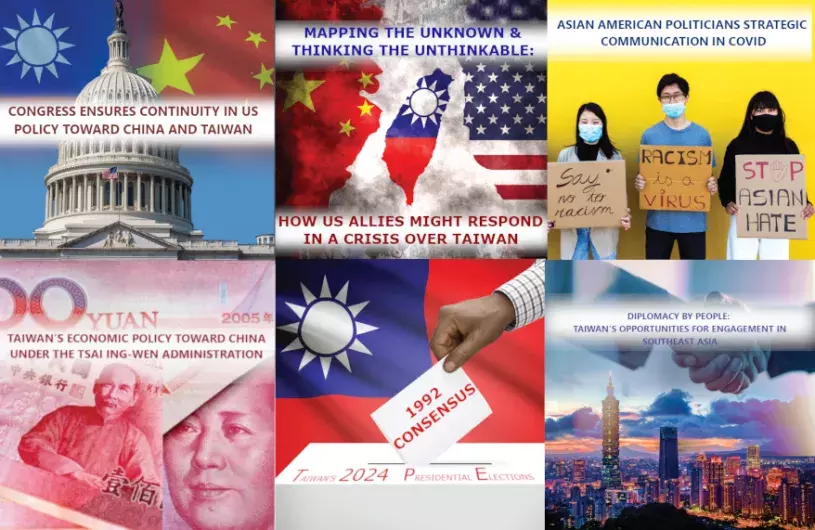
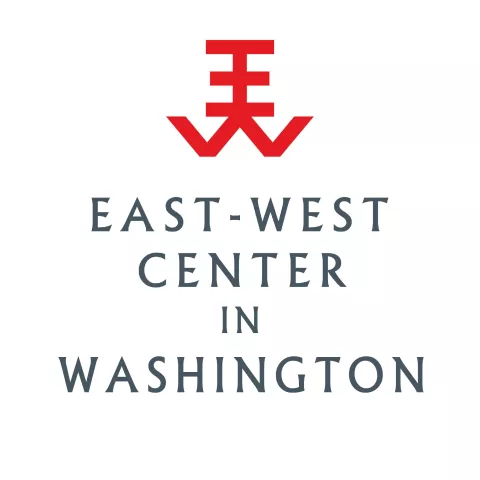
| This special series of EWC Occasional Papers is the result of the 2023 Taiwan & Asia Program Conference entitled. “Washington-Taipei-Beijing Relations at a Crossroads: the 2024 Elections and Geostrategic Implications from the Individual, Domestic, and International Levels of Analysis,” which was hosted by Ramapo College of New Jersey and sponsored by the Taipei Economic and Cultural Representative Office (TECRO) in Washington, DC. |

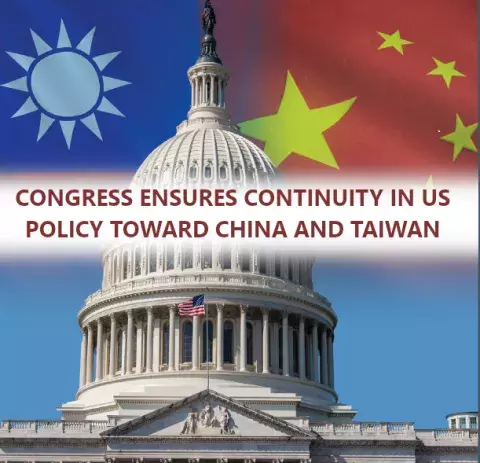
CONGRESS ENSURES CONTINUITY IN US POLICY TOWARD CHINA AND TAIWAN
By Robert Sutter, George Washington University
This article explains the evolution over the past six years of the US government’s clearer awareness of the dangers that Chinese challenges pose to America. It focuses on the central role of the US Congress in advancing US awareness and driving American responses. With Congress and both the Trump and Biden administrations working cooperatively together, the US government has been increasingly effective in building positions of strength at home and in working constructively with allies and partners abroad in carrying out acute...
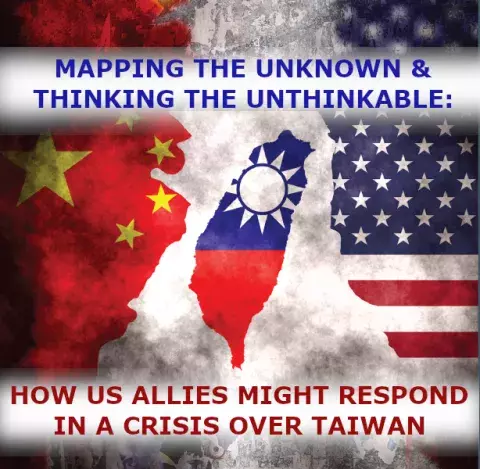
MAPPING THE UNKNOWN AND THINKING THE UNTHINKABLE: HOW US ALLIES MIGHT RESPOND IN A CRISIS OVER TAIWAN
David M. Sacks, Fellow for Asia Studies, Council on Foreign Relations
While a conflict in the Taiwan Strait is neither imminent nor inevitable, it is becoming increasingly imaginable. As the United States grapples with questions of how to maintain deterrence to prevent a war, and how to win a war if deterrence fails, it views its alliances in the Indo-Pacific as a unique strength that can help mitigate China's geographic advantages. At the same time, the level of support these allies would offer is unknown. Nonetheless, the decisions that Australia, Japan, the Philippines, and South Korea make during a conflict over Taiwan would...
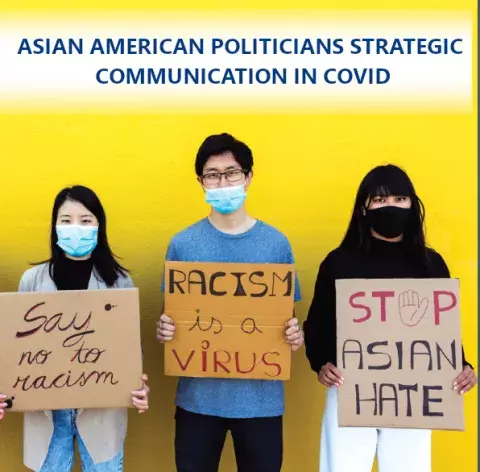
ASIAN AMERICAN POLITICIANS STRATEGIC COMMUNICATION IN COVID: TWEETS OF “STOP ASIAN HATE” AMID US-CHINA TENSIONS
Shu-An Tsai, SUNY Buffalo
This research delves into the strategic communication tactics engaged by Asian American politicians in publicizing messages amid the COVID-19 pandemic. In addition, this study analyzes the public response to different messages, especially their response to the messages regarding the Stop Asian Hate movement and national security. The methodology involves the collection of 31,694 tweets from Twitter, using content analysis and topic model network analysis to delineate the framing of messages disseminated by Asian politicians...
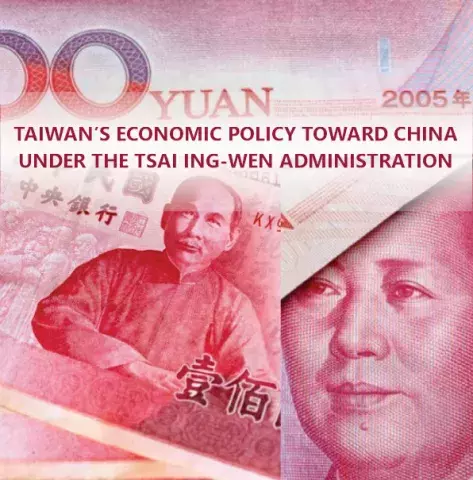
TAIWAN’S ECONOMIC POLICY TOWARD CHINA UNDER THE TSAI ING-WEN ADMINISTRATION
Chien-Kai Chen, Associate Professor of International Studies Rhodes College
This paper examines the economic policy toward China that the current president of Taiwan, Tsai Ing-wen, has adopted since 2016 by (1) comparing Tsai’s policy with her predecessors’ (i.e., Lee Teng-hui’s, Chen Shui-bian’s, and Ma Ying-jeou’s policies), (2) exploring the ambivalent attitude toward China-Taiwan economic ties among the Taiwanese general public, and (3) analyzing Tsai’s response to China’s growing economic coercion against Taiwan.
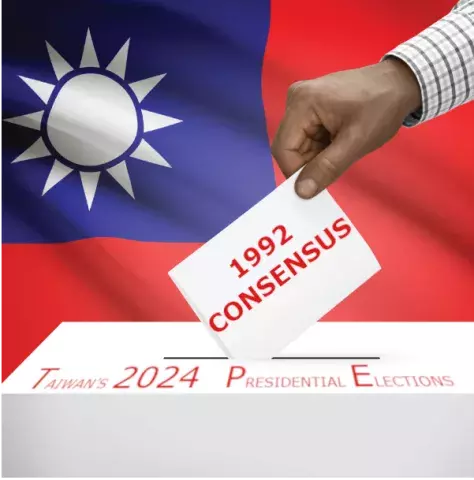
THE ROLE OF THE 1992 CONSENSUS AND TAIWAN’S 2024 PRESIDENTIAL ELECTIONS
Dean P. Chen, PhD, Professor of Political Science Ramapo College of New Jersey &
Kiely Paris-Rodriguez, Ramapo College of New Jersey
Having suffered consecutively from two national electoral losses in 2016 and 2020 to the Democratic Progressive Party (DPP), the Kuomintang (KMT) has been unable to settle on a strategically sound position to cope with the People’s Republic of China (PRC)’s determination to unify with Taiwan, formally known as the Republic of China (ROC), instead opting to grapple with a vague formula known as the 1992 Consensus to maintain ties with the Chinese Communist Party (CCP). As of this writing, the KMT’s prospect to recover...
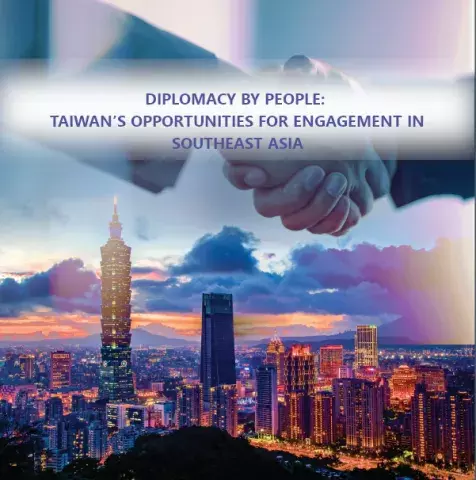
DIPLOMACY BY PEOPLE: TAIWAN’S OPPORTUNITIES FOR ENGAGEMENT IN SOUTHEAST ASIA
By Zoe Weaver-Lee, East-West Center
The long-standing regional ties between Taiwan and Southeast Asia have evolved to adapt to shifting geopolitical circumstances. Despite pushes for official diplomatic recognition for Taiwan, non-diplomatic engagement with Southeast Asia is not new. The region’s diverse position on great power conflict, cross-Strait relations, and its own domestic political complexities creates a significant challenge for Taiwan. However, if it can build on these pre-existing relationships to create an adaptable, partner-by-partner approach to Southeast Asia, Taiwan can...

| This special series of EWC Occasional Papers is the result of the 2023 Taiwan & Asia Program Conference entitled. “Washington-Taipei-Beijing Relations at a Crossroads: the 2024 Elections and Geostrategic Implications from the Individual, Domestic, and International Levels of Analysis,” which was hosted by Ramapo College of New Jersey and sponsored by the Taipei Economic and Cultural Representative Office (TECRO) in Washington, DC. |


CONGRESS ENSURES CONTINUITY IN US POLICY TOWARD CHINA AND TAIWAN
By Robert Sutter, George Washington University
This article explains the evolution over the past six years of the US government’s clearer awareness of the dangers that Chinese challenges pose to America. It focuses on the central role of the US Congress in advancing US awareness and driving American responses. With Congress and both the Trump and Biden administrations working cooperatively together, the US government has been increasingly effective in building positions of strength at home and in working constructively with allies and partners abroad in carrying out acute...

MAPPING THE UNKNOWN AND THINKING THE UNTHINKABLE: HOW US ALLIES MIGHT RESPOND IN A CRISIS OVER TAIWAN
David M. Sacks, Fellow for Asia Studies, Council on Foreign Relations
While a conflict in the Taiwan Strait is neither imminent nor inevitable, it is becoming increasingly imaginable. As the United States grapples with questions of how to maintain deterrence to prevent a war, and how to win a war if deterrence fails, it views its alliances in the Indo-Pacific as a unique strength that can help mitigate China's geographic advantages. At the same time, the level of support these allies would offer is unknown. Nonetheless, the decisions that Australia, Japan, the Philippines, and South Korea make during a conflict over Taiwan would...

ASIAN AMERICAN POLITICIANS STRATEGIC COMMUNICATION IN COVID: TWEETS OF “STOP ASIAN HATE” AMID US-CHINA TENSIONS
Shu-An Tsai, SUNY Buffalo
This research delves into the strategic communication tactics engaged by Asian American politicians in publicizing messages amid the COVID-19 pandemic. In addition, this study analyzes the public response to different messages, especially their response to the messages regarding the Stop Asian Hate movement and national security. The methodology involves the collection of 31,694 tweets from Twitter, using content analysis and topic model network analysis to delineate the framing of messages disseminated by Asian politicians...

TAIWAN’S ECONOMIC POLICY TOWARD CHINA UNDER THE TSAI ING-WEN ADMINISTRATION
Chien-Kai Chen, Associate Professor of International Studies Rhodes College
This paper examines the economic policy toward China that the current president of Taiwan, Tsai Ing-wen, has adopted since 2016 by (1) comparing Tsai’s policy with her predecessors’ (i.e., Lee Teng-hui’s, Chen Shui-bian’s, and Ma Ying-jeou’s policies), (2) exploring the ambivalent attitude toward China-Taiwan economic ties among the Taiwanese general public, and (3) analyzing Tsai’s response to China’s growing economic coercion against Taiwan.

THE ROLE OF THE 1992 CONSENSUS AND TAIWAN’S 2024 PRESIDENTIAL ELECTIONS
Dean P. Chen, PhD, Professor of Political Science Ramapo College of New Jersey &
Kiely Paris-Rodriguez, Ramapo College of New Jersey
Having suffered consecutively from two national electoral losses in 2016 and 2020 to the Democratic Progressive Party (DPP), the Kuomintang (KMT) has been unable to settle on a strategically sound position to cope with the People’s Republic of China (PRC)’s determination to unify with Taiwan, formally known as the Republic of China (ROC), instead opting to grapple with a vague formula known as the 1992 Consensus to maintain ties with the Chinese Communist Party (CCP). As of this writing, the KMT’s prospect to recover...

DIPLOMACY BY PEOPLE: TAIWAN’S OPPORTUNITIES FOR ENGAGEMENT IN SOUTHEAST ASIA
By Zoe Weaver-Lee, East-West Center
The long-standing regional ties between Taiwan and Southeast Asia have evolved to adapt to shifting geopolitical circumstances. Despite pushes for official diplomatic recognition for Taiwan, non-diplomatic engagement with Southeast Asia is not new. The region’s diverse position on great power conflict, cross-Strait relations, and its own domestic political complexities creates a significant challenge for Taiwan. However, if it can build on these pre-existing relationships to create an adaptable, partner-by-partner approach to Southeast Asia, Taiwan can...







